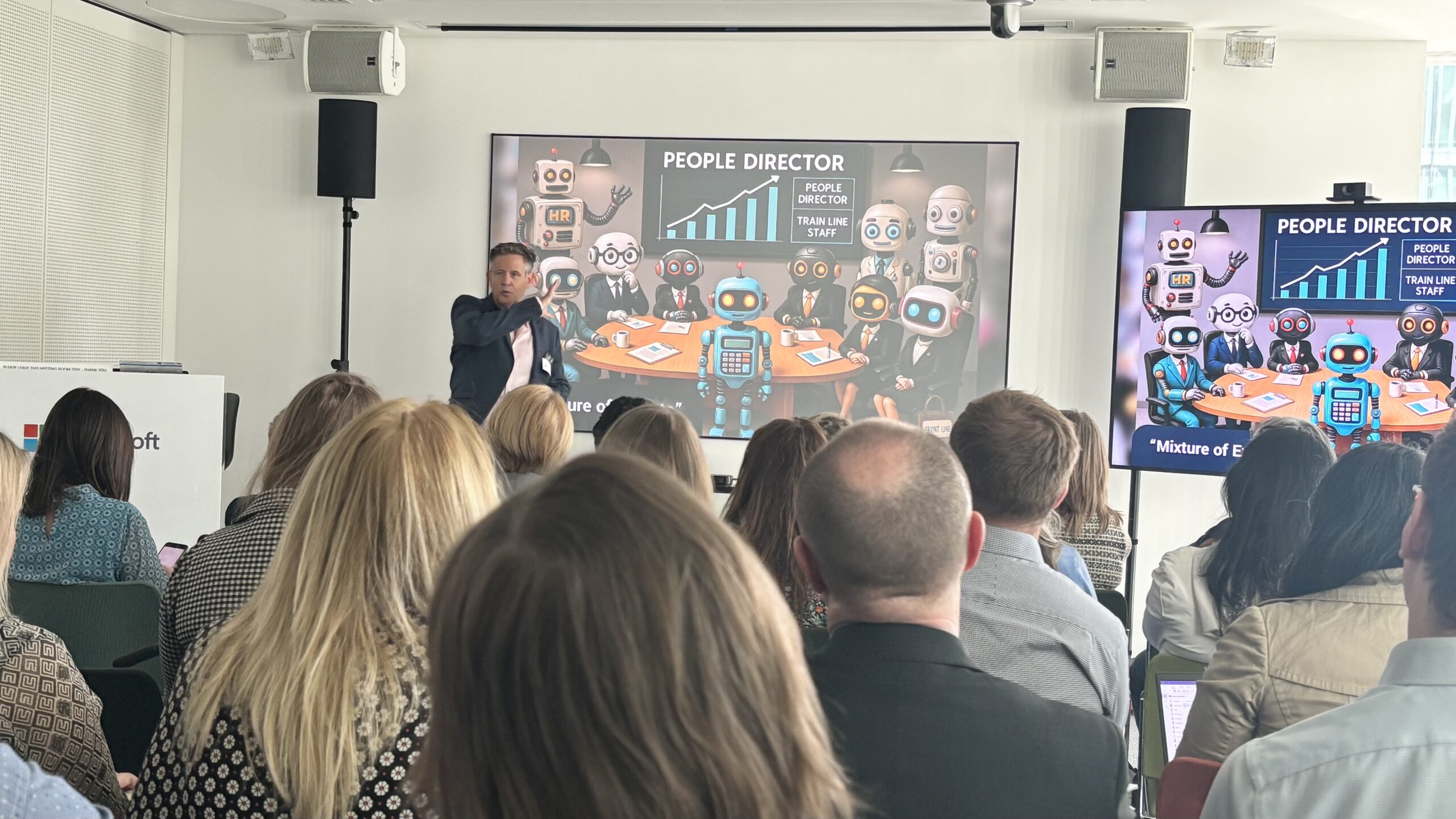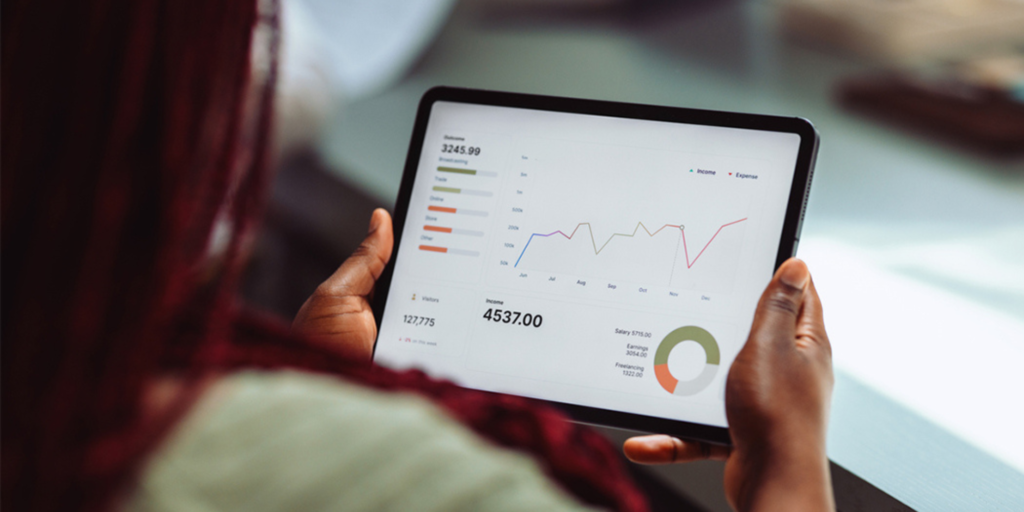Public sector HR teams are moving from early curiosity to practical exploration, eager to understand not just what AI is, but what it can do for their people, processes and organisations.
At a special event hosted by Microsoft and Zellis, we explored how AI is already making its presence felt. With 64% of public sector HR professionals already using AI in their processes, and 75% reporting that their roles have significantly changed over the past three years, the shift is no longer theoretical.
In this blog
Microsoft and Zellis event hosts councils and more
How ELLA helps public sector HR
How to measure the impact of AI in HR
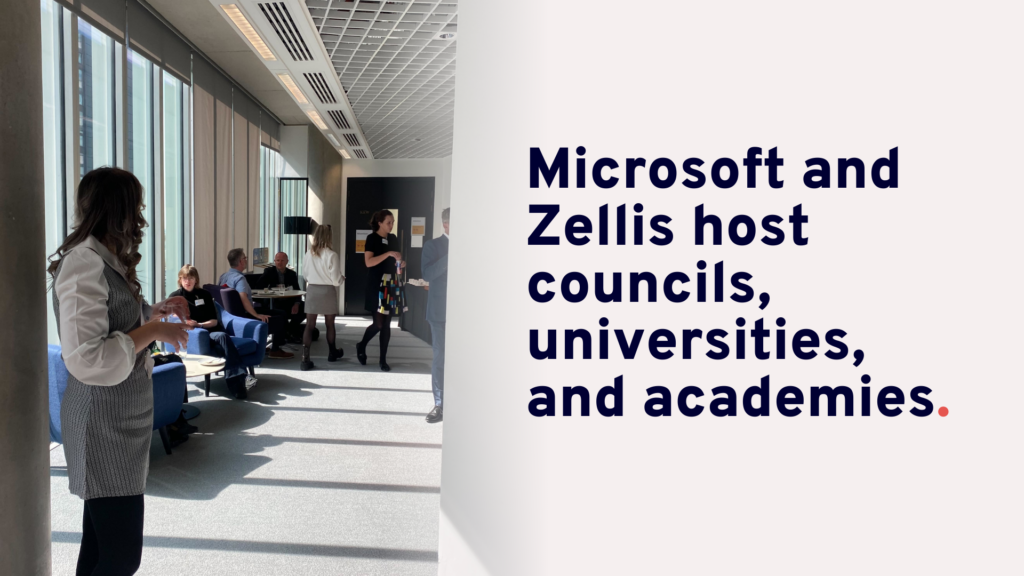
Microsoft and Zellis host councils, universities, and academies
To support this journey, Zellis joined forces with Microsoft to host a dedicated event at Microsoft UK’s HQ. The aim? To bring together public sector HR professionals from across different organisations including universities, academies, local councils, and more for a day of knowledge-sharing, hands-on sessions and thought-provoking discussion.
While AI has been everywhere in the headlines, the event was designed to move beyond the noise and focus on what really matters for HR: where AI fits, how to unlock value, and how to do it responsibly within the public sector.
We kicked off by asking the audience a simple but powerful question: what are your thoughts and feelings on AI in HR right now? Charlotte Russell, from Clancy Group, pointed to a key theme that shaped the day: a desire to better understand what AI can actually deliver in the day-to-day.
For many organisations, it’s still unclear what the real possibilities are. Kim Chudley from MOPAC (The Mayor’s Office for Policing and Crime) highlighted a concern that came up repeatedly across the event — how to manage data securely in a world where automation and AI are evolving fast. It’s a particularly relevant concern for the public sector, where trust, compliance and safeguarding are non-negotiable.
How ELLA, the AI assistant, helps public sector HR teams
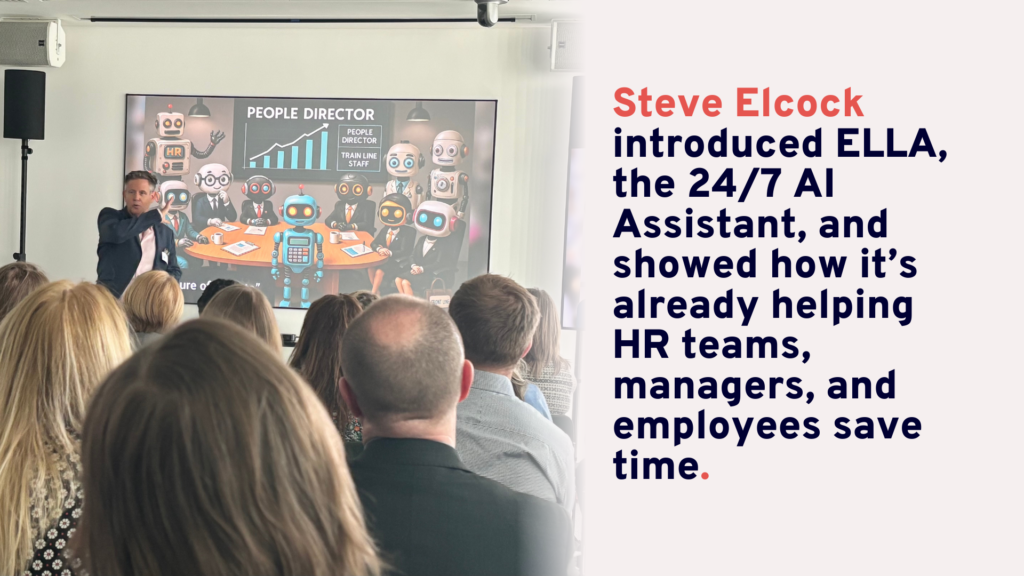
The first speaking session of the day came from Steve Elcock, Director of Product – AI & HCM at Zellis. Steve’s talk was thought-provoking as he quickly moved beyond the buzzwords. He introduced ELLA, the 24/7 AI Assistant, and showed how it’s already helping HR teams, managers, and employees spend less time on tedious manual tasks with real use cases across content generation, company information retrieval, 24/7 HR assistant, workflow. and agents.
Example queries ELLA can answer:
HR Admin: “Tell me which employees in our Ealing care home have outstanding holiday for the year and how much they have each.”
Managers: “Analyse last week’s appointment and admissions data in our hospital ward to identify trends or patterns in patient visits, service demand, or peak hours.”
Employee: “How do I handle a grievance with a coworker or supervisor in my team?”
As the public sector moves from trials and pilots into wider adoption, there are challenges to consider. In this session, Steve tackled some of the most pressing: how to ensure AI doesn’t replicate or reinforce bias in HR decision-making, how to design systems that are secure from the ground up, and how to ensure trust remains front and centre in every interaction.
Trust, transparency and accountability ran as a thread throughout the discussion as essential principles for anyone deploying AI in a public sector environment.
As Felicity Caldwall of Clancy Group put it:
“What’s brilliant is seeing the potential of AI – and knowing it means we can finally move past the repetitive, mundane tasks.”
That sense of potential kept resurfacing – not just in terms of what AI can deliver, but in how it enables people to focus on more meaningful, higher-value work.
Following this was Phil Gillingham, Vice President of HR Service Delivery at Microsoft, who shared how Microsoft’s Copilot technology is already helping HR teams take a more integrated, lifecycle-wide approach to AI adoption. From onboarding to performance management, from employee queries to reporting, Phil demonstrated how AI supports HR teams without replacing the human side of the role but still working with agency to significantly improve productivity across the business.
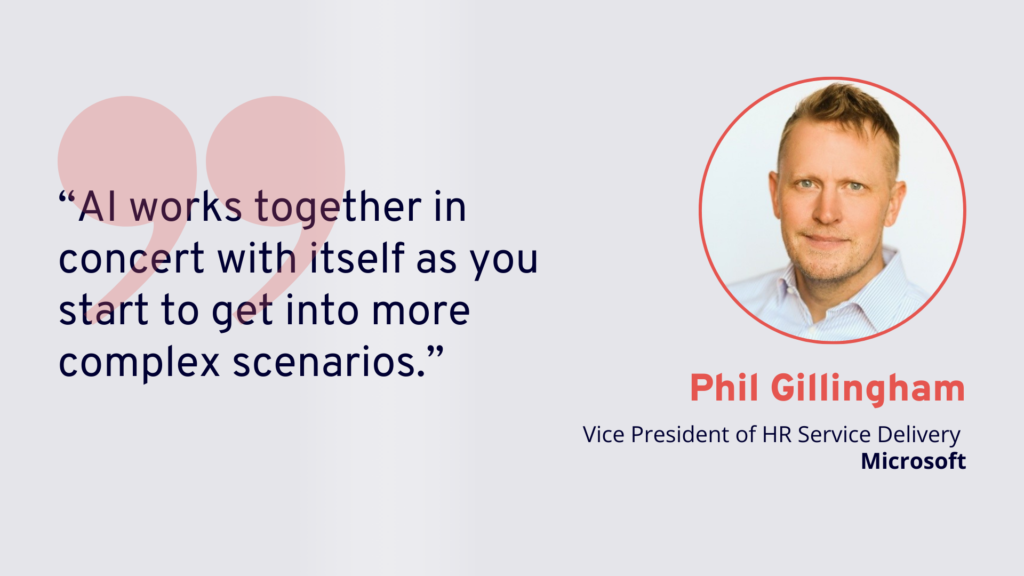
“AI works together in concert with itself as you start to get into more complex scenarios.”
Phil Gillingham, Vice President of HR Service Delivery at Microsoft
How to measure the impact of AI?
The final session of the day looked firmly ahead into coming years. George Dunnett (Chief Growth Officer, Zellis) and Steve Elcock returned to explore how public sector organisations can start preparing for what’s next.
As George put it,
Lots of people are very excited about this, but what do you do to start getting ready and start helping to prioritise amongst different use cases?”
That question framed the rest of the conversation.
For public sector organisations, this is just the beginning to a world of possibility. George and Steve talked through the practical steps that HR teams need to consider before diving into AI projects. That includes cleaning and structuring existing data, developing a clear change management approach, ensuring ethical standards are upheld, and aligning AI initiatives with core business goals.
They also addressed something that doesn’t get enough airtime: how to measure the impact of AI once it’s been introduced. Whether it’s saving time, improving accuracy or driving better outcomes for employees, knowing what success looks like is essential if AI is going to earn its place long term.
Conclusion: AI in HR is no longer abstract
Throughout the day, one theme kept coming back: readiness. Whether it was academy trusts looking to harmonise HR processes, local councils hoping to scale more effectively, or universities aiming to free up time for higher-value work, there was a clear appetite to move forward – but to do so in a thoughtful, strategic way.
If there was one takeaway from the day when it comes to AI in public sector HR, it was that the conversation about AI in HR is no longer abstract. It’s real, and it’s happening now. The questions have shifted – from “Should we be using AI?” to “How do we use it well?” The public sector is ready to move, and with the right tools, the right guidance and a clear sense of purpose, HR has the chance to lead the way.
Key takeaways
- 64% of public sector HR professionals are already using AI in their processes, signalling a shift from theoretical discussion to practical application in areas including pay transparency.
- Tools like ELLA, the 24/7 AI Assistant, are helping reduce manual tasks across content generation, information retrieval, and workflow management, freeing HR teams to focus on higher-value work.
- Trust, transparency, and accountability remain non-negotiable principles for public sector organisations implementing AI, especially when handling sensitive compensation data.
- Success with AI in HR requires preparation: clean data, clear change management strategies, ethical standards, and alignment with core organisational goals.
- The conversation has evolved from “Should we use AI?” to “How do we use it well?”, with public sector HR teams increasingly positioned to lead rather than follow in responsible AI adoption.
Meet your new AI recruit
Ready to explore how ELLA could support your public sector HR team to achieve more?



